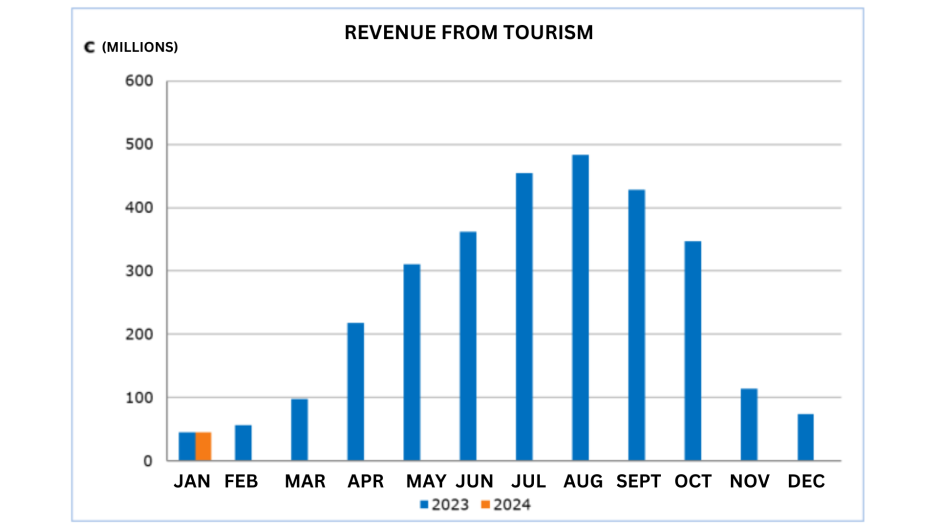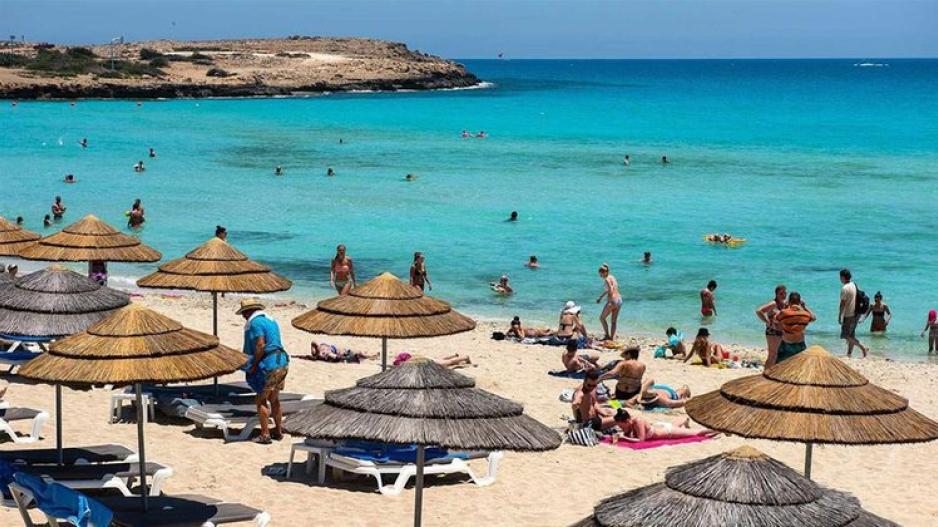Cyprus Tourism Expected to Decline in 2024
Geopolitical Developments and Issues of Local Governance are Creating Problems.
The tourism sector is facing serious challenges for 2024, which are growing day by day following the latest developments in the Middle East.
This was also stated in the Parliamentary Committee on Commerce, where the issue was discussed with the development plan of the Paralimni Municipality for the Pernera area.
Specifically, the former president of DISY, Averof Neophytou, during the discussion mentioned that 2024 will be a difficult year for tourism, following the latest developments, emphasizing the need to find ways to mitigate the impacts.
Although the latest developments will affect tourism in Cyprus, nevertheless, 2024 started off on a bad note right from the first days of the year.
Initially, due to the first phase of the war in Israel, it was decided in February to suspend cruises from Limassol Port to the Greek islands, as these were connected with trips to the Holy Places, for which there was no interest due to the war. It should be noted here that – before the war – Israel was the second largest tourism market for Cyprus.
A few days later, another bad circumstance would hit Cyprus tourism again, as, according to the schedules of the airlines, there was a decrease of about 500,000 seats compared to 2023 due to the grounding of several aircraft for repairs. This reduction translates to approximately 200,000 fewer tourists.
On his part, the Deputy Minister of Tourism noted that Cyprus will be affected and is expected to have a difficult year for tourism, however, as he added, the loss from this situation will not reach half a million seats.
Tourism does not only face external factors but also internal, specifically the lack of staff.
More specifically, during a conference in which the Deputy Minister of Tourism spoke in the previous days, the new risks that have arisen were highlighted, such as the ongoing fight against inflation, the energy crisis, shortages of labor, unexpected environmental disasters that unfortunately are increasing, and geopolitical tensions that hinder or slow down the full recovery of the sector.
As mentioned, one of the biggest challenges facing the hospitality sector is addressing the shortage of labor. For this reason, it was emphasized that it is important to support training programs and internships for those working in the tourism sector, as well as various forms of employment, including part-time and temporary work.
According to the latest data from the Statistical Service, tourism revenues in January 2024 amounted to €45.2 million compared to €45.6 million in the corresponding month of the previous year, marking a decrease of 0.9%.
It is noted that tourist arrivals in January 2024 slightly decreased to 87,961 compared to 90,549 in January 2023.

According to the Statistical Service, the per capita expenditure of tourists in January 2024 amounts to €513.52, compared to €503.83 in January 2023, marking an increase of 1.9%.
British tourists (the largest tourist market with 18.6% of the total tourists in January 2024) spent an average of €52.73 daily, compared to €49.84 last January.
Polish tourists (the second-largest tourist market for that month with 18.2% of the total) spent an average of €67.90, compared to €62.61 in January 2023.
Tourists from Greece (the third largest market with 11.8%), spent €40.85 daily, compared to €35.97 in January 2023.
Tourists from Israel (the fourth largest market) spent €118.34 daily, compared to €145.63 in January 2023.






